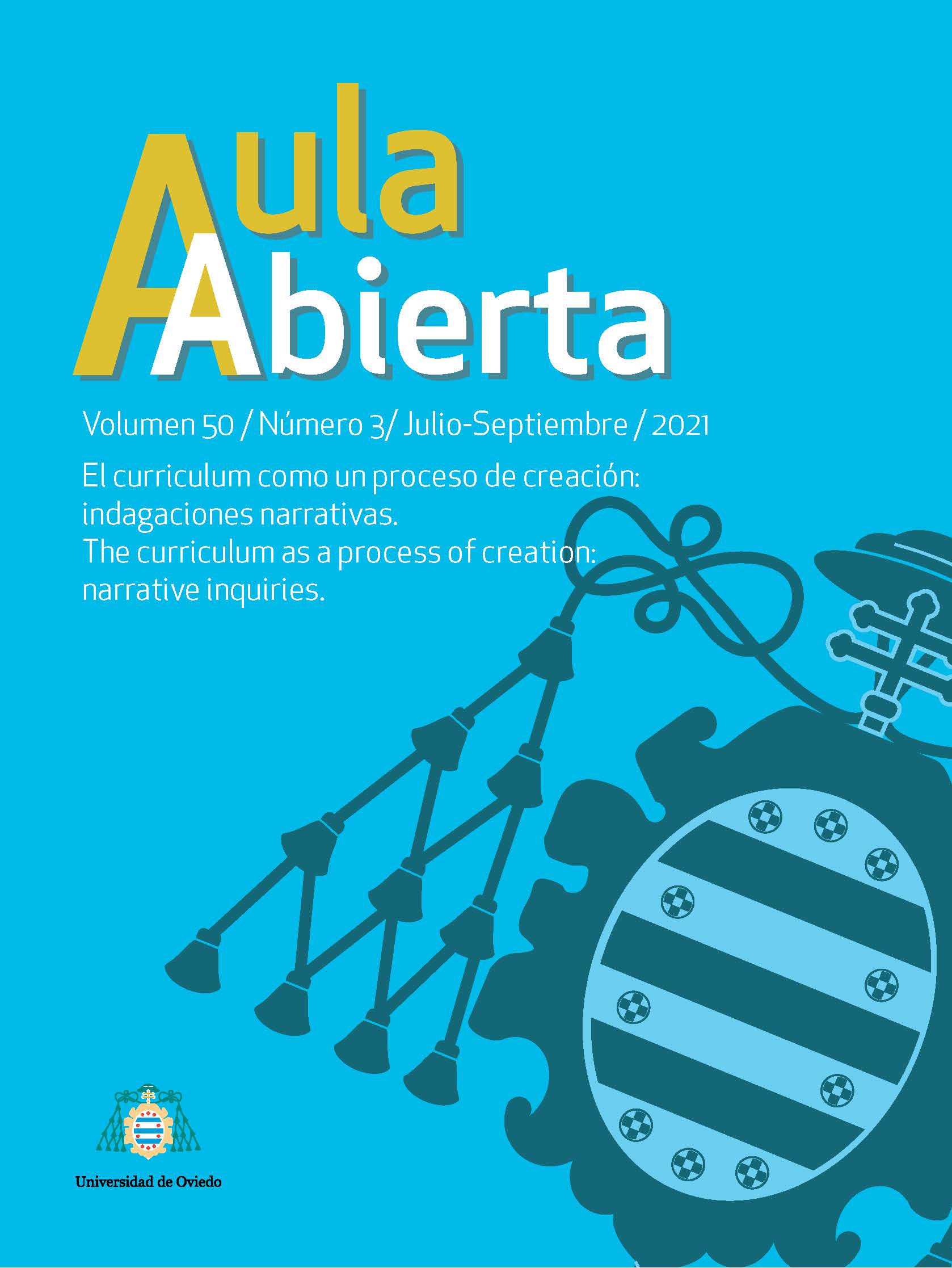Abstract
This article explores narratively the experiences of a teacher, her 5th grade students, and a researcher during the realization of a school project on Alzheimer. Altogether, teacher and researcher, we present some stories that allow us to inquiry how students, through different school activities, explore who they are and what the world around them is like. We think with the stories narratively, trying to understand their interrelation with a world that goes beyond the walls of the school and overflows the prescriptive curriculum. Finally, we elaborate a proposal that re-signifies the teaching-learning processes as creation processes, experiences that allow (re) create our relationships with the world.
References
Aoki, T. (2012). Curriculum in a new key: the collected works of Ted T. Aoki. (W. Pinar y R. L. Irwin, Eds.). Routledge. https://doi.org/10.4324/9781410611390
Arendt, H. (1996). Entre el pasado y el futuro. Ocho ejercicios de reflexión política. Ediciones península.
Biesta, G. y Osberg, D. (2007) Beyond Re/Presentation: A Case for Updating the Epistemology of Schooling. Interchange 38, 15–29. https://doi.org/ 10.1007/s10780-007-9015-2
Osberg, D. y Biesta, G. (2021) Beyond curriculum: Groundwork for a non-instrumental theory of education, Educational Philosophy and Theory, 53 (1), 57-70. https://doi.org/ 10.1080/00131857.2020.1750362
Clandinin, D.J. y Connelly, M. (1996). Teachers' Professional Knowledge Landscapes: Teacher Stories. Stories of Teachers. School Stories. Stories of Schools. Educational Researcher. Vol. 25, No. 3 , pp. 24-30. https://doi.org/10.2307/1176665
Clandinin, D. J. (1998) Stories to live by: Narrative understandings of school reform. Curriculum inquiry, 28(2), 149-164. https://doi.org/ 10.1111/0362-6784.00082
Clandinin, D.J. y Rosiek, J (2007). Mapping a landscape of narrative inquiry. Borderlands and tensions. En Clandinin (ed.) Handbook of narrative inquiry. Sage. https://doi.org/10.4135/9781452226552
Clandinin, D. J. (2013) Engaging in Narrative Inquiry. Left Coast Press. https://doi.org/10.4324/9781315429618
Contreras, J. (2010). Ser y saber en la formación didáctica del profesorado: una visión personal. RIFOP, 24 (2), 61-81.
Contreras, J. y Pérez de Lara, N. (comps.) (2010). Investigar la experiencia educativa. Morata.
Contreras, J. (2013). El saber de la experiencia en la formación inicial del profesorado. RIFOP, 78 (27,3) 125-136
Contreras, J. (Comp) (2016). Tensiones fructíferas: explorando el saber pedagógico en la formación del profesorado. Octaedro.
Contreras, J. (Comp) (2017). Enseñar tejiendo relaciones. Morata
Contreras, J. (2021). Abrir caminos, emprender viajes: el currículum como experiencia de apertura. Aula abierta (pendiente de publicación)
Díez, E.J. (2010). La globalización neoliberal y sus repercusiones en educación. REIFOP, 13(2), 23-38.
Garcés, M. (2016, febrer 29). Inacabar el món. [Conferencia]. Debat de Barcelona, CCCB, Barcelona. https://www.cccb.org/ca/multimedia/videos/marina-garces/223347
Korthagen, F. A. J., et al. (2013) Teaching and learning from within. Routledge. https://doi.org/10.4324/9780203121405
Marramao, G. (1992). Kairós. Apología del tiempo oportuno. Gedisa
Masschelein, J. y Simons, M. (2014). Defensa de la escuela. Una cuestión pública. Miño y Dávila.
Autor1 et al. (Pendiente de publicación). El oficio de enseñar: inicios posibles y memorias creadas. En López, A. y Gabbarini, P. (Coords). Atravesar fronteras, explorar nuevas narrativas. Octaedro
Rodgers, C. & Raider-Roth, M. (2006) Presence in teaching. Teachers & Teaching: theory and practice, 12(3), 265-287. https://doi.org/10.1080/13450600500467548
Sevilla, S. (2011). Saber y racionalidad en el pensamiento de María Zambrano. Aurora, 12, 64-73.
Webb, K. & Blond, K. (1995) Teacher knowledge: The relationship between caring and knowing. Teaching and Teacher Education, 11(6), 615-625. https://doi.org/10.1016/0742-051x(95)00017-e

This work is licensed under a Creative Commons Attribution-NonCommercial-NoDerivatives 4.0 International License.
Copyright (c) 2021 Aula Abierta






